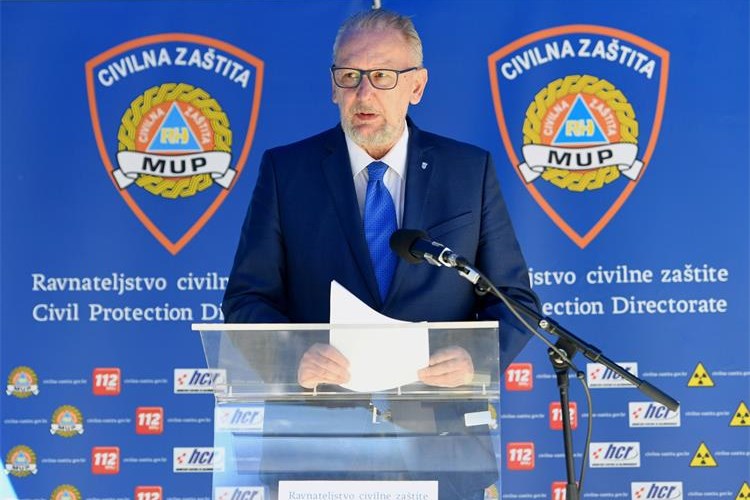- Published: 10.05.2020.
We are entering a new phase in which most activities are reactivated
Epidemiological measures are being tightened on the southern island of Brac after it has become a new hotspot of the coronavirus epidemic, the head of the national coronavirus crisis management team, Interior Minister Davor Bozinovic, announced at a daily press conference on Sunday.
Bozinovic said that the regime that had been in place until April 27 would apply, including restricted outdoor movement, suspension of public transport, funeral services and social gatherings, and shorter shop opening hours.
Announcing the third phase of relaxation of restrictions starting on Monday, Bozinovic said that gatherings of up to 40 people would be allowed, instead of up to five as had until now been the case, and that shopping centres, restaurants and national and nature parks would be allowed to reopen. Artists and cultural workers will be allowed to hold practices and rehearsals, individually and in small groups.
The decision prohibiting people from leaving their registered place of residence is being repealed, but can be reactivated at national level or at regional or local level, Bozinovic said.
Restrictions on organising cultural events, both indoors and outdoors, will be eased as of May 18. Sports and recreational centres, gyms and fitness centres will be allowed to reopen as of May 13 and swimming pools as of May 18.
Intercity road and rail transport will also be restored as of Monday.
Croatia confirms 11 new coronavirus cases, 3 deaths in last 24 hours
Eleven new cases of coronavirus infection have been registered in Croatia in the last 24 hours, bringing their total to 2,187, while the death toll has increased by three to 90, Health Minister Vili Beros told a daily press conference on Sunday.
A total of 44,886 people have been tested to date, including 668 in the last 24 hours, of whom 4.87% have tested positive.
Three women, born in 1925, 1931 and 1935, died in hospital in the northern town of Koprivnica, and all had underlying chronic conditions.
A total of 169 infected people are currently in hospitals, including 13 on ventilators; 675 patients have recovered in hospitals and 1,089 at home, bringing the total number of recoveries to 1,764, which is 38 more than on Saturday.
Of the 11 cases confirmed in the last 24 hours, eight were in self-isolation.
On the southern island of Brac, the new hotspot of the infection, eight people have tested positive, all exhibiting mild symptoms. Only two infected persons from the island are hospitalised in Split, Beros said.
On Brac, 92 swabs were taken on Saturday and 49 have been tested; eight have tested positive, while other results are pending.
The infection index, or the reproduction number which shows how many people have been infected by one individual, was 0.2 before the outbreak on Brac island, when the daily number of infections was in single digits. Now it has jumped to 0.8.
The island is now being placed under the restrictions regime that was in force until April 27.
People entering country no longer required to self-isolate
The director of the Croatian Institute of Public Health, Krunoslav Capak, said that people entering Croatia would no longer be required to self-isolate but would need to follow strict guidelines.
They will be required to keep their contacts with other people to the minimum, spend as little time as possible outdoors and maintain hygiene. They are also advised to wear face masks and take their body temperature regularly. If they notice any symptoms, Croatian nationals need to report to their GP while foreign nationals should contact the epidemiological service, he said.
Capak noted that restaurants and bars that were reopening on Monday would be allowed to work on Sundays, unlike retail shops. "We believe that hospitality establishments do not attract as much mobility as shops do."
Asked to comment on an expected increase in the movement of people after the lifting of travel restrictions and the restoration of road and rail transport, Capak said that people's movements would be monitored and that he hoped they would not be excessive, calling for caution.
Text: Hina
